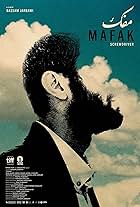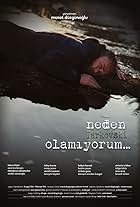Not a lot happens in the plot of Mâsuk'un Nefesi (BREATH OF THE BELOVED). Abdurrahman (Abdurrahman Düzcan), a learner at the İstanbul Conservatory of Music, becomes interested in the meşk - traditional training in reciting the Mawlid, or the Nativity of the Prophet Muhammad). He tries to work with one of the few specialists left, a Hoca (Mustafa Başkan), who proves inaccessible at first, yet eventually relents and helps Abdurrahman towards mastering the art.
As with any film involving Semih Kaplanoğlu - who produces Murat Pay's film - MASUK'UN NEFESİ has some trenchant things to say about the relationship between human beings and the universe. Initially Abdurrahman believes that he can acquire the sacred knowledge from books; but they only provide a framework for his study. Sometimes they inhibit rather than encourage human potential, as suggested in at least three interior shots set in a secondhand bookshop that show the characters hemmed in by shelves.
In the end there is no substitute for good hard practice; and throughout the film we see Abdurrahman working on his recitations - at home, in the bus, on the tram, by the Bosphorus as well as in the mosque. He also learns how to become a good listener, not just appreciating the words uttered by the Hoca, but appreciating the meaning behind them. Sometimes, as another of his teachers (Hadi Duran) tells him, it is necessary simply to learn through listening and an endless process of trial and error.
As with many Kaplanoğlu works, the action proceeds through a series of long takes - two-shots and close-ups - emphasizing the developing relationship between Abdurrahman and the Hoca. There are two suggestive shots of the Bosphorus, with Abdurrahman on a boat staring out at the water. In the first, he gazes with a look of utter despair out towards the Sea of Marmara, convinced beyond doubt that he will never gain access to the Hoca. In the second, he is shown looking from a boat towards the European side of İstanbul: land and water appear in unison as two of the elements comprising the universe. Having already learned a lot from the Hoca about the power of music, Abdurrahman now understands its intrinsic connection to the world and the God overseeing it.
Those viewers unfamiliar with the tradition of Mawlid might find MASUK'UN NEFESİ rather boring, with its repeated use of chants and incantations. On the other hand, if we understand the power of music to reveal to us the order of the spheres, the film proves highly enlightening.




















